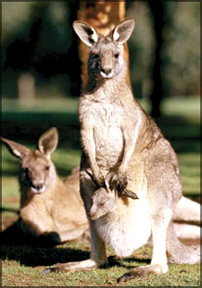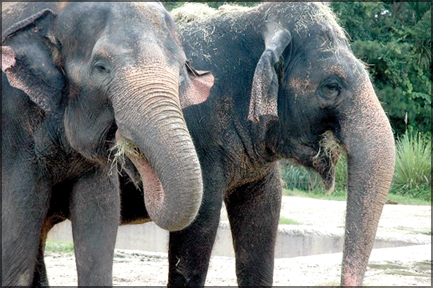|
-new-navin-2.jpg)
Get your environmental star rating
 |
|
Switching to
energy-saving light bulbs |
A compulsory environmental star rating is to be introduced for all
Government and private schools in Sri Lanka with the approval of the
Ministry of Education. This is an initiative of the Sri Lanka Girl
Guides Association as yet another key step in its endeavour to raise
awareness among all schoolchildren of the impact and consequences of
global warming. It also aims to encourage the next generation to take
responsibility for the environment.
The project commenced in October in schools in the Colombo District
and would be extended to schools in the provinces in phases. A series of
workshops and seminars would take place around the country to educate
school principals, teachers and students on this programme.
The workshops would be organised to build awareness and educate
students on the actions to be taken to reduce energy consumption. These
include switching to energy-saving light bulbs and switching off
computers and other electronic equipment, fans and bulbs when leaving
the room.
Electricity and heat are responsible for 24.5 per cent of the world's
greenhouse gas emissions. Reducing energy consumption is therefore a key
factor in preserving the environment.
Other key areas which would be focused at the workshops are
conservation of water, increasing tree growth and recycling. Some of the
actions to be carried out under the conservation of water would be using
a watering can in the school garden instead of a hose-pipe and rain
water harvesting. Recycling efforts would include using both sides of
paper, buying re-usable items rather than disposables, re-using and
repairing items such as classroom furniture instead of buying new ones
and using recycling bins.
Global warming threatens kangaroos
 Australian
scientists have issued another warning concerning global warming, saying
kangaroos face possible extinction this century as temperatures rise.
Researchers at James Cook University suggest that an increase in average
temperature of only two degrees Celsius could have a devastating effect
on Australia's kangaroos. Australian
scientists have issued another warning concerning global warming, saying
kangaroos face possible extinction this century as temperatures rise.
Researchers at James Cook University suggest that an increase in average
temperature of only two degrees Celsius could have a devastating effect
on Australia's kangaroos.
"Our study provides evidence that climate change has the capacity to
cause large-scale range contractions, and the possible extinction of one
macropodid (kangaroo) species in northern Australia," researchers Euan
Ritchie and Elizabeth Bolitho said.
The scientists said they used computer modelling and data from three
years of field observations to predict how expected temperature changes
during the next half-century might affect kangaroos.
They found a temperature increase as small as a half-degree Celsius
might significantly shrink kangaroos' geographic ranges and an increase
of just two degrees might shrink the ranges by as much as 48 per cent. A
six-degree increase, they said, could reduce range sizes by 96 per cent.
-UPI
The day to remember our gallant soldiers
They shall not grow
old, as we that are
left grow old.
Age shall not weary them, nor the years condemn.
At the going down of the sun and in the morning,
We will remember them.
- From the poem ĎFor the Fallení
by Laurence Binyon (1869 - 1943 |
If you happen to travel to Colombo today, to the area around the
Vihara Maha Devi Park, you would notice a special event taking place at
the Cenotaph War Memorial located nearby. You would notice many people
including service personnel, war veterans and the public laying down
poppy wreaths at this memorial.
What is this special event? Of course, itís Remembrance Sunday or
Poppy Day. This is the day when many countries in the world including
Sri Lanka remember their war-dead. In Sri Lanka, the main events of the
day are organised by the Sri Lanka Ex-Servicemenís Association, which
has a membership drawn from the Army, Navy and Air Force.
Many countries organise special events to remember their war heroes.
These include Veteransí Day in the USA, Armistice Day in France and
Remembrance Day in Britain. November is considered as the Month of
Remembrance by most countries, especially those who took part in the
First and Second World Wars.
 The
British Remembrance Day is always held on November 11 to commemorate the
day that World War I ended in 1918, with the signing of the Armistice
Treaty in Northern France. Fighting stopped at 11.00am on this day, and
a two-minute silence is observed on the 11th hour of the 11th day of the
11th month to commemorate this. All movement stops at this time so that
everyone may concentrate on the remembrance of war heroes. The
British Remembrance Day is always held on November 11 to commemorate the
day that World War I ended in 1918, with the signing of the Armistice
Treaty in Northern France. Fighting stopped at 11.00am on this day, and
a two-minute silence is observed on the 11th hour of the 11th day of the
11th month to commemorate this. All movement stops at this time so that
everyone may concentrate on the remembrance of war heroes.
The nearest Sunday to the 11th is called Remembrance Sunday, when
ceremonies are held in honour of those involved in wars, and wreaths are
laid on war memorials. A two-minute silence is followed by a bugler
playing ĎThe Last Postí.
The poppy is considered the flower of remembrance. Itís more than a
symbol - it is a source of hope and aid to many. Poppies, which are made
by hospitalised soldiers in memory of their fallen comrades, are sold to
the public around this time.
All proceeds from the Poppy Day sale are used to provide welfare and
other facilities for disabled soldiers and dependents of dead
servicemen. The red poppy was adopted as the symbol of remembrance
because it was widespread on the battlefields of Europe after the First
World War. Its petals symbolised the blood left by soldiers, and came to
be associated with remembrance.
Our country is also going through a decade-old war. This has robbed
the lives of many armed services personnel, who were in the prime of
their youth. On this day, it is our duty to remember and honour them -
the brave Sri Lankan soldiers and Police personnel who paid the ultimate
sacrifice to provide a safe and secure country for the rest of us!
 Open
air elephant home at Lunugamwehera Open
air elephant home at Lunugamwehera
We have been hearing a lot about the human-elephant conflict lately.
This has robbed the lives of and injured many beings, both elephants and
humans.
As a solution to this conflict, the first ever open air elephant home
is now being set up at Lunugamwehera. An area of the Lunugamwehera
National Park, which is of 4,000 acres in extent, has been allocated for
this purpose. A canal for the park is currently being set up while an
electrified fence is also being established to confine the elephants to
the home.
Life may stem from volcanic eruptions
 U.S.
space agency-funded research suggests lightning and gases from volcanic
eruptions could have given rise to the first life on Earth. U.S.
space agency-funded research suggests lightning and gases from volcanic
eruptions could have given rise to the first life on Earth.
National Aeronautics and Space Administration (NASA) scientists,
along with researchers at Indiana University reached that conclusion
after re-analysing samples from a classic origin-of-life experiment
conducted in the early 1950s.
"Historically, you don't get many experiments that might be more
famous than these; they re-defined our thoughts on the origin of life
and showed unequivocally (clearly) that the fundamental building blocks
of life could be derived from natural processes," said the study's lead
author Adam Johnson, a graduate student with the NASA Astrobiology
Institute team at Indiana University.
"This research is both a link to the experimental foundations of
astrobiology as well as an exciting result leading toward greater
understanding of how life might have arisen on Earth," said Carl Pilcher,
director of the NASA Astrobiology Institute at the space agency's Ames
Research Center.
The study that included James Cleaves of the Carnegie Institution for
Science and Antonio Lazcano of the National Autonomous University of
Mexico is reported in the journal Science.
UPI
|

